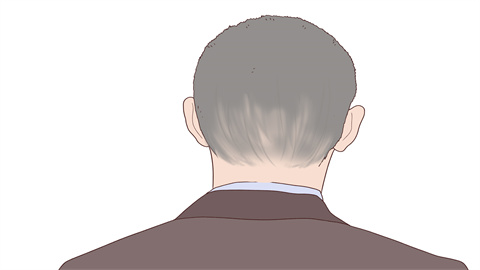How to relieve throbbing pain at the back of the head
In general, intermittent pain in the back of the head may be caused by lack of sleep, poor posture, excessive mental stress, occipital neuralgia, cervical spondylosis, hypertension, and other factors. It is recommended to seek medical attention promptly and follow a doctor's guidance to relieve symptoms through general treatments, medications, and other methods. A detailed explanation is as follows:

1. Lack of Sleep or Poor Posture
Lack of sleep prevents the brain from obtaining sufficient rest, leaving it in a fatigued state with dilated cerebral blood vessels, which may trigger pain in the back of the head. Poor sleeping posture, such as maintaining a twisted position for a prolonged period, can cause tension and spasms in the neck muscles, irritating the nerves and potentially causing referred pain in the back of the head. It is important to maintain a regular sleep schedule, ensure 7-8 hours of sleep daily, choose a pillow with an appropriate height and firmness, and maintain correct sleeping posture.
2. Excessive Mental Stress
When under significant mental stress, the body secretes hormones such as adrenaline, causing blood vessel constriction, especially in cerebral vessels, which may lead to abnormal cerebral blood supply. Increased muscle tension can also result in pain in the back of the head. In daily life, it is important to learn to relieve stress through exercise, meditation, listening to music, and maintain a positive mindset.
3. Occipital Neuralgia
Occipital neuralgia often results from trauma, infection, or other factors that irritate or compress the occipital nerves. When the occipital nerves are stimulated, they can cause paroxysmal stabbing or electric shock-like pain in the back of the head that may radiate to the top of the head or the ears. It may also be accompanied by neck muscle spasms and sweating. Under a doctor's guidance, medications such as carbamazepine tablets, oxcarbazepine tablets, or gabapentin capsules can be used for treatment.
4. Cervical Spondylosis
Cervical spondylosis is caused by long-term strain on the cervical spine, bone spurs, disc protrusion, and other factors that lead to narrowing of the cervical intervertebral space, compressing the nerves and blood vessels in the neck. When the nerves are compressed, referred pain in the back of the head may occur. Symptoms may also include numbness and weakness in the upper limbs. Patients can take medications such as Jingkang capsules, eperisone hydrochloride tablets, and mecobalamin tablets as directed by a physician.
5. Hypertension
Hypertension is caused by multiple factors leading to elevated blood pressure, such as heredity, high-salt diet, obesity, and lack of physical activity. Excessively high blood pressure increases the pressure on cerebral blood vessels, stimulating nerve endings in the vessel walls and causing pain in the back of the head, along with symptoms such as dizziness and palpitations. Patients can take medications such as amlodipine besylate tablets, losartan potassium tablets, or metoprolol tartrate tablets as recommended by their doctor.
In daily life, it is important to maintain healthy habits, avoid chilling of the head and neck, reduce prolonged periods of looking down at phones or computers, and perform moderate neck exercises, such as neck stretching and rotational movements, to strengthen neck muscles and maintain cervical spine stability.








